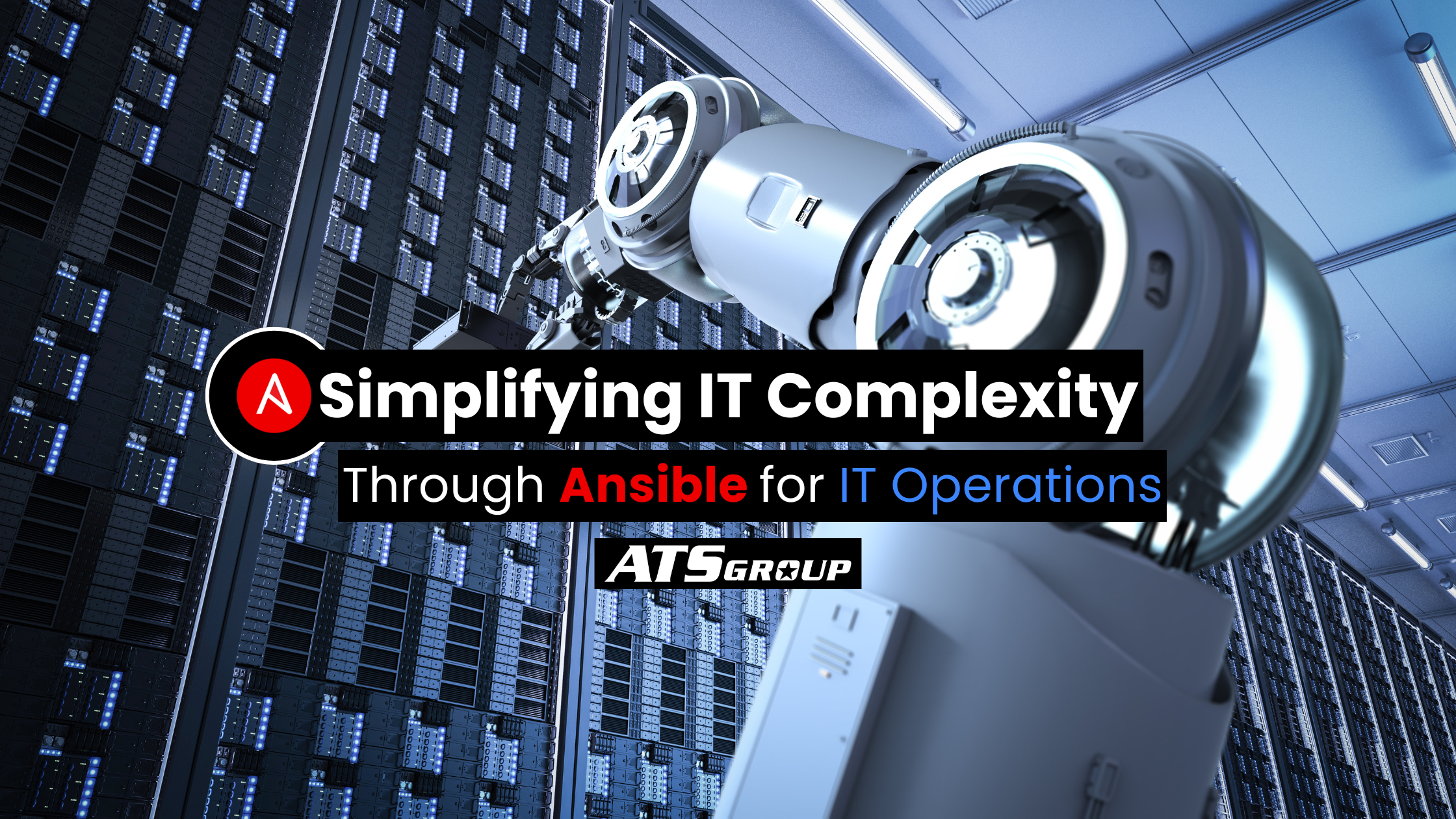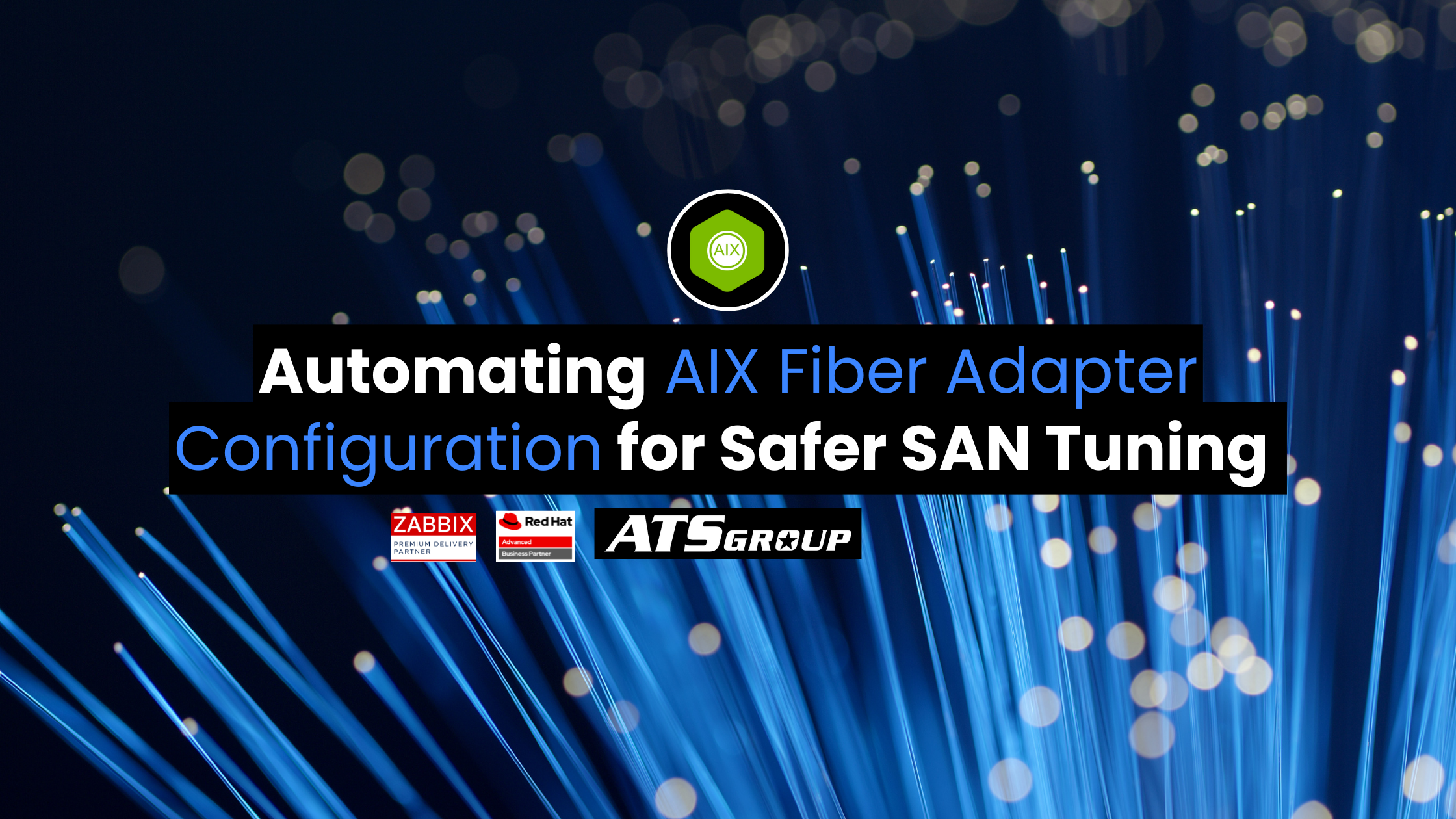IT teams today face increasing complexity in managing hybrid cloud environments, security risks, and operational inefficiencies. Ansible for IT Operations provides a scalable, automated solution to streamline workflows, enforce security policies, and enhance system reliability. Organizations will struggle to keep pace with evolving IT demands without automation, leading to unnecessary downtime and resource constraints.
Hybrid cloud sprawl, mounting security threats, and an ever-expanding application ecosystem have turned IT management into a relentless struggle against inefficiency. Traditional, manual approaches can’t keep up—leading to increased risks, operational delays, and rising costs.
Ansible for IT Operations provides a way forward, transforming IT from reactive troubleshooting to proactive, strategic execution.
Why IT Complexity Is Becoming Unmanageable
IT complexity isn’t just an inconvenience—it’s a major barrier to productivity. Today, IT environments are growing faster than teams can manage, resulting in inefficiencies, security gaps, and operational bottlenecks.
Hybrid and multi-cloud architectures have become the norm, leaving organizations juggling thousands of applications while navigating an evolving cybersecurity landscape. The challenge isn’t just growth; it’s also the lack of cohesion in managing it all. Common pain points include:
- Infrastructure Sprawl – Rapid cloud adoption has led to fragmented infrastructure across multiple platforms.
- Configuration Drift – Manual processes introduce inconsistencies, increasing vulnerabilities and complicating troubleshooting.
- Security & Compliance Risks – IT teams must continuously monitor and secure their systems while maintaining compliance with evolving regulations.
- Skills Gaps & Resource Constraints – IT teams constantly struggle to keep up with emerging technologies.
- Reactive Operations – Without Ansible for IT Operations, IT spends more time fixing issues than optimizing performance or driving innovation.
How Ansible for IT Operations Simplifies IT Management
Ansible for IT Operations addresses IT complexity by reducing manual tasks, standardizing configurations, and enabling repeatability. Key benefits include:
1. Eliminating Manual, Repetitive Tasks
Manually configuring servers, deploying applications, and updating systems consumes valuable time. Ansible for IT Operations replaces these labor-intensive processes with predefined workflows, allowing IT teams to focus on higher-value initiatives.
2. Enhancing Consistency & Reducing Errors
Human error is one of the biggest risks in IT. Ansible for IT Operations ensures deployments, configurations, and updates follow standardized, repeatable procedures—reducing downtime and operational disruptions.
3. Accelerating Deployment & Scaling
Ansible for IT Operations enables IT teams to provision infrastructure, deploy applications, and scale resources on demand. This agility improves time-to-market and responsiveness to business needs.
4. Strengthening Security & Compliance
By automating patch management, compliance checks, and security enforcement, Ansible for IT Operations helps organizations proactively mitigate vulnerabilities and reduce exposure to cyber threats.
5. Enabling Proactive IT Management
Rather than reacting to problems, IT teams can use Ansible for IT Operations to predict and prevent issues before they impact operations—improving system reliability and performance.
Key Areas Where Ansible for IT Operations Delivers Value
Automation enhances IT operations in several critical areas:
- Infrastructure as Code (IaC): Automates the provisioning and configuring of servers, networks, and cloud resources.
- Application Deployment & Management: Streamlines software deployment and updates across environments.
- Security & Compliance Automation: Automates vulnerability scanning, patch management, and compliance enforcement.
- IT Service Management: Improves incident response, monitoring, and ticket resolution.
- Cloud & Hybrid Cloud Operations: Automates workload migration, scaling, and governance across multi-cloud platforms.
By integrating Ansible for IT Operations into these areas, organizations can achieve greater agility, efficiency, and control over their IT ecosystems.
How to Choose an IT Automation Solution
Selecting an IT automation solution requires finding a platform that streamlines workflows, integrates seamlessly, and follows best practices (NIST Guide to IT Automation).
Key considerations include:
- Ease of Use & Implementation – Look for a user-friendly interface that doesn’t require extensive coding expertise.
- Scalability & Flexibility – The solution should support hybrid and multi-cloud environments as IT needs evolve.
- Integration Capabilities – Compatibility with existing tools ensures smooth implementation and maximizes efficiency.
- Security & Compliance Support – Built-in security features like role-based access control and compliance auditing are essential.
- Community & Vendor Support – Open-source solutions like Ansible for IT Operations offer strong community support, while vendor-backed tools should provide robust documentation and assistance.
- Cost & Licensing Model – Consider the total cost of ownership, including licensing, maintenance, and operational expenses.
Case Study: How Red Hat Ansible for IT Operations Simplifies IT Management
Red Hat Ansible for IT Operations is a powerful, open-source automation platform streamlining IT complexity. With its agentless architecture and human-readable YAML syntax, Ansible enables IT teams to easily automate infrastructure management, security, and application deployment.
Agentless Architecture for Seamless Integration
Unlike traditional automation tools that require agents on each system, Ansible for IT Operations operates without them—reducing management overhead and compatibility issues.
Infrastructure as Code (IaC) for Consistency
Ansible for IT Operations allows organizations to define infrastructure configurations as code, eliminating configuration drift and enabling faster disaster recovery.
Automated Security & Compliance Enforcement
By automating security tasks such as patching, vulnerability remediation, and compliance audits, Ansible for IT Operations enhances IT security and regulatory adherence. (CISA Security Automation Resources
Streamlined Application Deployment & Management
Ansible Playbooks define repeatable workflows for seamless software deployment, scaling, and rollbacks—ensuring reliable application releases.
Scalability Across Hybrid & Multi-Cloud Environments
Whether managing on-premises, public cloud, or hybrid environments, Ansible for IT Operations provides a unified automation framework for seamless scalability.
The Future of IT Is Automated
As IT environments grow more complex, automation is no longer optional—it’s essential. Organizations that embrace automation gain a competitive advantage through improved efficiency, reduced risks, and accelerated innovation.
Red Hat Ansible for IT Operations demonstrates how automation can simplify IT operations by providing an intuitive and scalable infrastructure management, security enforcement, and application deployment solution. By leveraging Ansible for IT Operations, IT teams can transition from reactive maintenance to proactive, strategic execution.
The organizations that successfully manage IT complexity will be the ones that thrive—and Ansible for IT Operations is the key to making that future a reality.
Take the Next Step
IT automation isn’t just about efficiency—it’s about future-proofing your operations. Start transforming your IT strategy today with Ansible for IT Operations.
🔹 Explore how ATS Group can help. 🔹 Schedule a consultation to discuss your automation goals. 🔹
Don’t wait—unlock the full potential of IT automation now.




